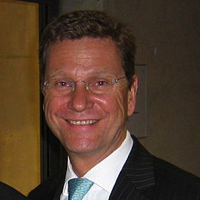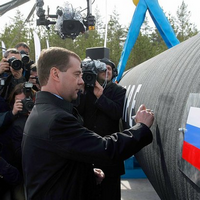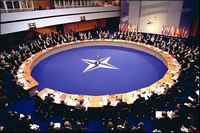According to documents made public by WikiLeaks, improving ties between Russia and Norway have caused strain within NATO. In an email interview, Pavel K. Baev, a research professor at the Peace Research Institute Oslo, discussed Russia-Norway relations. WPR: What is the recent history of Russia-Norway relations? Pavel K. Baev: The post-Soviet history of Russian-Norwegian relations is by no means problem-free. The long list of incidents and grievances includes spy scandals, arrests — and subsequent dramatic escapes — of trawlers for overfishing, the radar at Vardø administered by the Norwegian Intelligence Service, and Russia’s failed test of a Bulava missile that […]
Europe Archive
Free Newsletter

On Sunday, Guido Westerwelle announced his resignation as German vice chancellor and leader of the Free Democratic Party (FDP), the junior partner in Chancellor Angela Merkel’s coalition government. Endless disputes had already bogged down Merkel’s second administration even before it stumbled in its response to Japan’s tsunami-triggered nuclear crisis and its vote on the U.N. resolution imposing a no-fly zone over Libya. Last week, however, the bill came due, and the coalition was trounced in two crucial state elections. Since then, with the FDP in open revolt, the coalition government has been in utter chaos, and the fate of its […]

With energy market observers focused on the Middle Eastern uprisings and the Japanese catastrophe, the entrance on March 21 of the German company Wintershall into the consortium backing the South Stream pipeline came as a great surprise. Inaugurated in 2007 as a 50-50 joint venture between Russian giant Gazprom and Italy’s ENI, the project aims to transport up to 63 billion cubic meters (bcm) of natural gas per year from the eastern shore of the Black Sea to the consuming markets of Eastern, Central and Southern Europe. According to the memorandum of understanding signed in Moscow, Wintershall will acquire a […]

The commencement of military operations in Libya has led to some unexpected reactions in Eastern European capitals. It was widely expected that Russia, whose uneasiness with the very principle of humanitarian intervention is well-known, would have used its veto at the U.N. Security Council to block the passage of Resolution 1973. After all, Russia’s firm opposition to the Kosovo intervention in 1999 led the United States to work through NATO rather than bring the matter to the Security Council. And Moscow has had a clear track record over the last decade of resisting Western calls for intervention on humanitarian grounds […]
